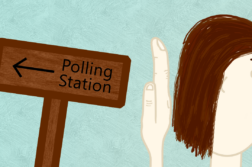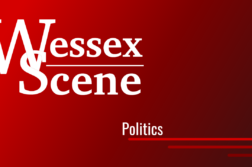Disclaimer: The views expressed within this article are entirely the author’s own and are not attributable to Wessex Scene as a whole.
Britain is leaving the European Union and entering into a new era of fresh sovereignty. It would be foolish to simply slip into the uncompromising grip of Uncle Sam.
If the UK government follows suit with France in waving the white flag by delaying or withdrawing their manifesto commitment of a Digital Sales Tax (DST) on US technology giants in the face of Washington browbeating, we will have done just that.
Back in the summer of 2019, French politicians approved a 3% annual tax on tech companies with revenues exceeding €750 million globally and €25 million domestically. But following the Trump administration’s threat of retaliatory tariffs on French exports which could have brought about a full-scale trade war, President Macron agreed to put the plans on ice.
Meanwhile, in the UK, the crisis on the high street continues to deepen into the new decade, with last week’s job losses exceeding 3,000 with the closures of all UK Mothercare stores. The seemingly inevitable collapse of the British high street will soon lead to an almighty black hole in government finances in lost business rates and indirect tax revenue.
As Tesco CEO Dave Lewis wrote last May:
Billions of pounds have shifted online, but the rates system was never devised to account for this. Because the [business rates]bill is linked to property – not profit – shops struggling to keep the doors open have to pay up, while larger online businesses pay just a fraction.
While high street retailers fall into oblivion, leaving families on jobless and on the breadline, international corporate chiefs continue to rake in millions of pounds virtually tax-free, something which the President of the United States seems hell-bent on facilitating.
Earlier this week Trump’s Treasury Secretary Steve Mnuchin, speaking at the World Economic Forum in Davos, said of the proposed tax, ‘If people want arbitrarily to put taxes on our digital companies, we’ll consider arbitrarily putting taxes on car companies […] they’ll find themselves faced with President Trump’s tariffs‘.
UK International Trade Secretary Liz Truss defiantly shot back in Parliament, saying:
Let me be absolutely clear. UK tax policy is a matter for the UK chancellor. It’s not a matter for the US, it’s not a matter for the EU, it’s not a matter for anybody else, and we will make the decisions that are right for Britain, whether it is on our regulatory standards, whether it’s on our tax policy, or whether it is on anything else.
As we forge a bright future outside of the European Union, Britain needs to defend its sovereignty against bullies on both sides of the Atlantic. This US administration appears to be successfully and repeatedly feigning victimhood and invoking its claim to ‘American exceptionalism‘ to secure favourable treatment for its companies across the world. But it is imperative that the UK government puts an early stop to it. Backing down on the DST would prove to the EU that, just before we enter crucial trade negotiations with them, we are weak, feeble yes-men.
Former Chancellor George Osborne has predicted we will back down, saying, ‘It would certainly be a very brave British government that walks into a trade war with the United States at the very moment [that]the centre point of its economic policy is to strike a trade deal with the US‘. But he has missed the point entirely. The point of Brexit was not to facilitate a transfer of British sovereignty from Brussels and across the pond to Washington but to take our destiny into our own hands.
The British government does not want to enter a trade war with the United States. It simply wants to stabilise its flow of tax revenue in light of a fast-adapting global economy based on digital services. If the United States wants to play games, it will serve only to reignite the incentive for the resolution of a joint OECD initiative to negotiate a similar DST on behalf of 134 nations against the US.
In the end, if Britain holds strong, President Trump will back down. As we witness year-on-year vacancy rates of high street stores skyrocket, job losses soar, and local commerce fall victim to multinationals with no stake in Britain, we should remember that knowing what is right means nothing unless we also do what is right.



